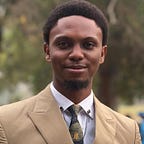Learning how to number my days
A week ago, I turned a year older and in the weeks leading to the day, I was processing, trying to put a handle on how fast life had been moving. In just a few years, I’ve passed through so many phases in my life, and each phase has taught me more than I would be willing to admit.
Over time, I’ve noticed that everyone has a mental picture of who they think they are and an image of the person they want to be. Some might be lucky enough to be able to compare both images and find no difference, while the rest of us wake up each day, with the desire to get more out of our lives.
Sadly, it’s so easy for us to get caught up in the “busyness” and activities of our lives, that we forget to pause and actually question where we are and where we are going.
For me birthdays are the perfect opportunity to pause, take a break from my usual routines or mental patterns and put my life into perspective.
As the day got closer, I was preparing to do my annual self-evaluation, a tradition I had started some years back, realizing that it wasn’t enough for me to just have dreams, ambitions or goals.
I needed a system to effectively reflect, learn more about myself, and analyze the distance between me and my set destinations.
This system is a combination of mental models I have adopted from books I have read over the years. I was going about my usual routine when I thought about sharing these models.
This is not because I feel like I am in a place of superior knowledge or experience but, I have felt the impact of using these self-evaluation models over the years, so I have decided to share them with you.
These models have kept me from making horrible mistakes and have helped me to find meaning out of a lot of situations and experiences. They have also helped me gain a lot of clarity on a lot of my thoughts and emotions.
So here they are:
Reflections
Reflections are one of the most powerful gifts of the human mind. They are our ability to travel back in time and relive moments over and over again, spotting things we missed the first time around. Asides birthdays, I also reflect at the start, middle and end of the year.
I reflect with a focus on 5 elements that occur across the different aspects of my life (mental/ educational, physical, spiritual, financial, career, family and my social life.)
These 5 elements are:
- Goals
- Lessons
- Obstacles (or Failures)
- Successes (wins) and,
- The people involved in these particular moments of my life.
The casual remembrance of successes and failures we have over time is barely enough to give us the full picture of those moments. The usually underrated side of reflection for most of us is the aspect of our failures, or the obstacles in the path to our success. Failure teaches us so much more than success does. Sometimes, success can be a lousy teacher as it is hard to pinpoint the specific cause of success at a given point in time.
Another side of this reflection model that I consider invaluable is the People aspect. People inevitably make up a huge part of our lives. Reflecting on the influence of the people involved in different aspects of my life has given me a keen appreciation for them.
Introspection:
Have you ever felt a cluster of emotions overwhelm you so much that you feel frozen? Have you ever had problems deciphering these feelings and channeling them into smart actions?
If you’re like me and you’re not so good at mentally identifying certain moods, emotions or feelings fast enough to take seemingly necessary action, then this might be of help to you.
When I find myself in such situations, I often ask myself a series of simple, but effective questions that have helped me comprehend what goes on in my head.
It helps me trace the origin of certain beliefs, perspectives or biases, and properly plan my next steps of action after my mental analysis.
Here are the questions;
- What happened?
- Why did it happen?
My personal favorite, WHY brings out so many answers you probably never knew existed. - What did it do to me?
The impact of the situation. - What did it mean to me?
This is my second favorite question. We have subconscious reactions and biases, but when we question our perspectives, patiently enough to dig deep, we discover new things about ourselves. - What am I going to do about it?
Steps I can take to make things better.
Using these models has made me realize that objective self evaluation plays a huge role in improving the quality of our lives. Now, I can’t imagine a life without a means of introspection and reflection.
I’m really glad that you’ve read this far, it means a lot. I hope you found this article helpful.
Thanks for reading ✌
